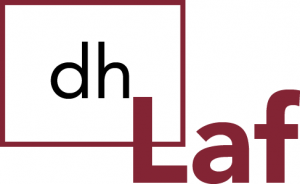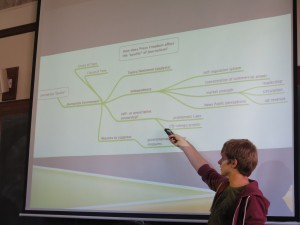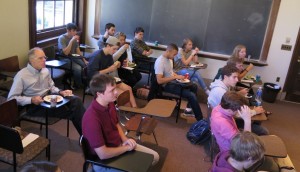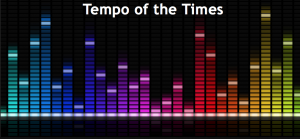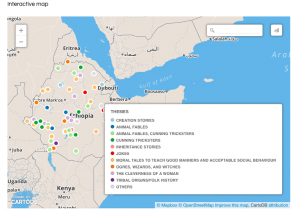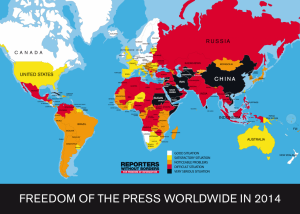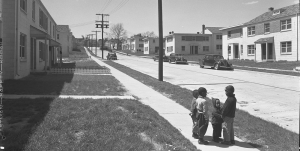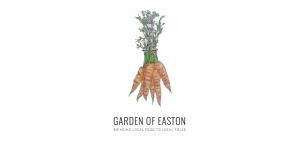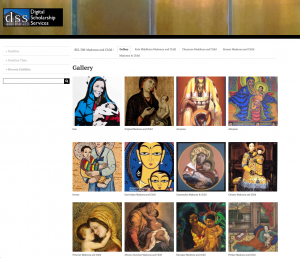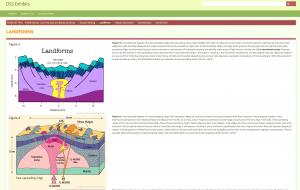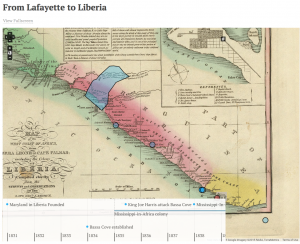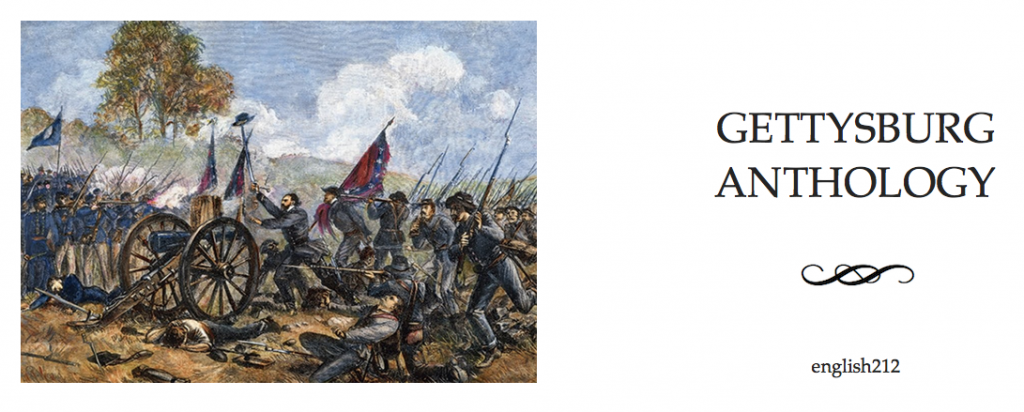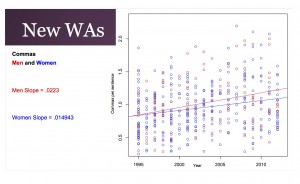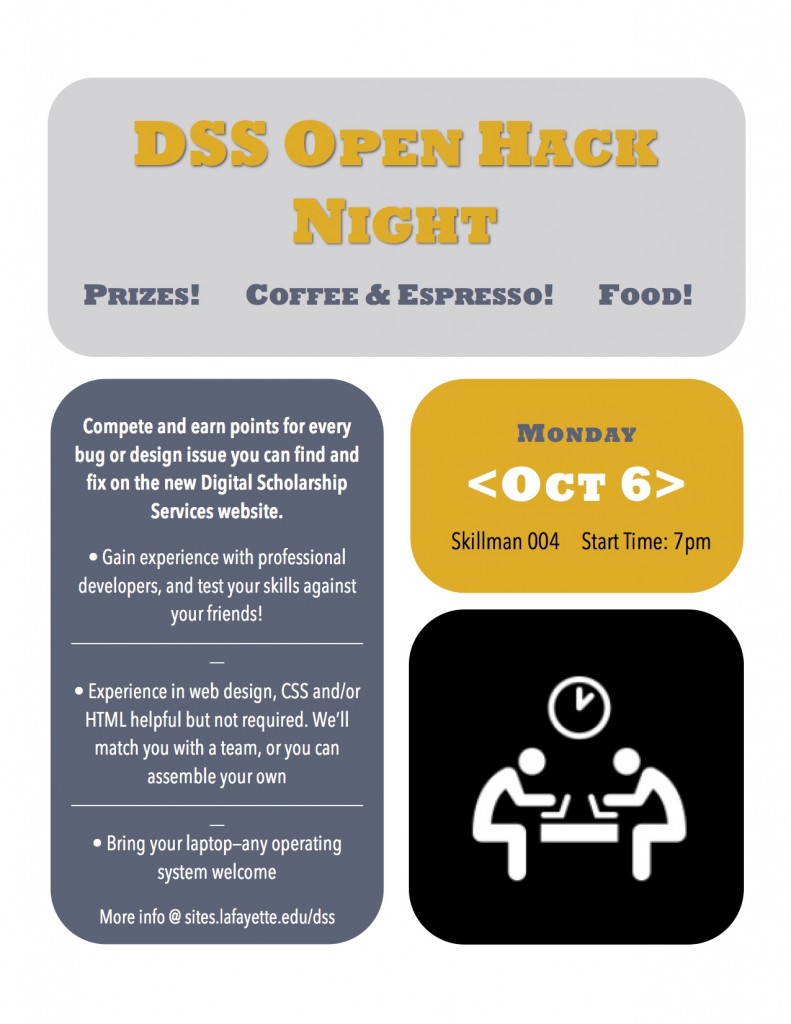Fifteen students and six faculty and administration members of the DH Mellon Steering Committee gathered for presentations of digital humanities research projects on September 23, 2015, in Kirby 107 as the first of the monthly DH Lunch series of the year. The research grew out of the Digital Humanities Summer Scholars Program funded by the Steering Committee and launched in the summer of 2015. Mellon Foundation Fellow Emily McGinn coordinated the summer research program, and facilitated discussion at today’s event. First up were Vincent DeMarco and Benjamin Draves. Their project, Tempo of the Times, began with a family conversation about depression-era films and how popular arts reflect their historical contexts. To extend this inquiry into the realm of popular music, DeMarco and Draves searched for existing databases of music and ways to break songs down into measurable components. They located several massive datasets, adapted the variables and quantifiers to their own questions, and then went to work. Their current site, as they explained with interactive graphs, presents correlations of economic indicators such as GDP, political indicators such as levels of military spending, with musical variables such as “acousticness” or “loudness” to determine which types of music thrive under what types of epochs.
Ian Morse gave the second presentation. His project is the Solution Based Press Freedom Project. Ian recently studied abroad in Turkey, and his project is an attempt to use a corpus-based methodology to analyze the content of Turkish journalism. Morse mentioned that many global press-freedom indexes fail to control for such variables such as national development, and pay insufficient attention to the quality and tone of reporting as it is affected by political upheavals. Morse has been converting newspaper data to machine readable text, and then using a variety of digital humanities tools find patterns in the data. One of Morse’s next moves is to present his data and preliminary findings to experts on Turkish politics and journalism at a conference at the Bucknell Digital Scholarship Conference “Collaborating Digitally: Engaging Students in Public Scholarship” in November of this year. DeMarco and Draves will also be on the program, as well as other DH summer fellows Feevan Megersa and EXCEL student Jethro Israel.
Dean of Libraries Neil McElroy, Professors Wendy Wilson-Fall (Africana Studies), Tim Laquintano (English), Ben Cohen (Engineering Studies), Paul Barclay (History), and Jessica Carr (Religious Studies), as well as Research Librarian Sarah Morris, were also in attendance to ask questions and participate in the discussion.
The next DHLaf Lunch will be on October 29th in Skillman 003 from 12-1 and will feature a discussion of History Professor Paul Barclay’s recent work in connecting his East Asia Image Collection with a complementary collection at Kyoto University in Japan. 